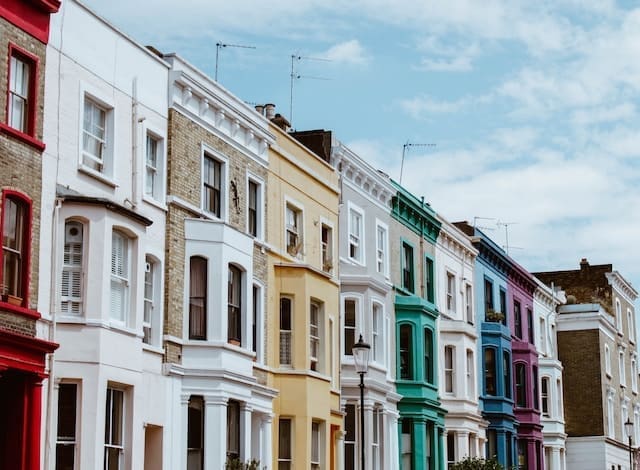When you’re looking to buy a home, it’s important to know what the current market is like so you can go into the buying process with your eyes wide open. With mortgage rates rising as a result of inflation, house prices are falling month on month, with Nationwide reporting an average percentage decrease of 5.3% from January 2023 – August 2023.[1] The drop in the housing market is a result of as the fifteen Bank of England (BoE) base rate rises we have seen since the end of 2021. The increased pressure this is putting on buyers having to pay more, we are seeing sellers drop house prices in a bid to ensure their property sells.
But what do these increasing reductions in house prices mean for the market and will they continue to fall?
What do high interest rates mean for the housing market?
The Bank of England base rate increases over the last year and a half has directly affected the mortgage market because as the base rate increases, so too do mortgage rates. Increase rates has caused the mortgage market slow down because people can no longer afford to buy. The increase in mortgage rates means that monthly mortgage payments are also increasing which for some, now makes buying a home unfeasible. As such, many people are making the decision to hold off on buying to save more money but also wait to see and if the rates will come back down.
It is this reduction in demand that is causing house prices to fall. Sellers want to make sure their property sells and one way to do this is reducing the house price to make it more affordable to prospective buyers. With the reduction in house prices, those who opted to put a hold on buying due to affordability, might now be able to buy as more houses become available in their budget.
House prices falling is a counter measure to the high interest rates but there are arguments that house prices haven’t dropped enough yet to make up for the extra money people will be spending as a result of increased interest.
And whilst a freeze was put on the BoE base rate on 21st September 2023, which could signal a future drop in interest rates, we cannot be sure that this is certain to unfold.[1] Should the base rate stay as it is for some time, rates are still high enough that we could see a potential further fall in house prices.
Will house prices keep falling?
In short, it is hard to predict where the market will go now that the BoE base rate has frozen. However, with the base rate still being 5.25%, it is likely that house prices will continue to fall. With demand for housing being down 25% for the year so far, as reported by Zoopla’s executive director, unless there is a decrease in interest rates, house prices will no doubt continue to drop in the interest of becoming more attractive to buyers, and so encourage more people to enter the market.[1]
Despite the BoE base rate, some lenders have started to offer lower interest rates, in a bid to bring more people back into the buying market. These lower rates, paired with the continuing fall in house prices, could be the positive boost the industry needs. Although it still seems far off, there are certainly indicators that the market might start to stabilise soon. And though it won’t return to normal as we saw it before the first BoE base rate rise in 2021, there will no doubt be a new normal we will all have to become accustomed to.
[1] https://www.nationwidehousepriceindex.co.uk/reports/house-prices-relatively-stable-in-june-but-annual-growth-remains-in-negative-territory
[2] https://www.bankofengland.co.uk/monetary-policy-summary-and-minutes/2023/september-2023
[3] https://propertyindustryeye.com/property-industry-reacts-to-bank-of-englands-decision-to-freeze-interest-rates/
Looking for mortgage advice near you?
Primis mortgage network has over 2,600 advisers to help you get a mortgage.


